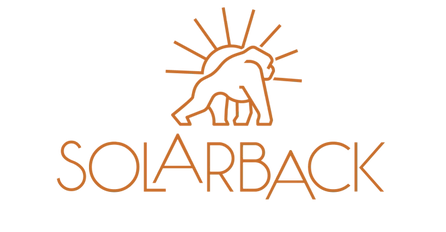What’s On Your Roof? How SolarBack Plans To Help Sunshine State Building Owners Profit From Solar Energy

Inspiration can strike at any time or place. For Joshua Schuster, who has developed approximately $2B in mostly vertical commercial real estate in six states over the past decade, the eureka moment came while he was walking across a crowded parking lot to a grocery store under the hot South Florida sun.
“As I'm approaching this large shopping center with the sun beating down on me, I notice how much unused horizontal real estate there is here in South Florida,” said Schuster, who had recently moved to the Sunshine State with his family. “I turn around, I see another shopping center across the street, then a strip mall next to that and I’m seeing a lot of empty roof space. If you imagine the roof as an additional usable floor, I don’t think any landlord would allow an entire floor to remain vacant without a tenant.”
The result of Schuster’s inspiration is SolarBack, a Boca Raton-based sister company to Schuster’s other CRE venture, SilverBack. SolarBack was co-founded by Schuster and Robert Stillman, and, along with a team of consultants and engineers with more than 50 years of combined experience in solar energy, the company says it’s poised to leave its mark on people, the planet and Wall Street.
“We are not solar installers,” Schuster said. “We’re environmental, social and governance investors. Our capitalization is led by an institutional family office, and we have identified flat rooftops as a clear pathway not only to profits, but to a cleaner environment.”
Stillman said vacant roofs present a largely untapped opportunity for the building owner, landlord and investors.
“Instead of sitting largely vacant, flat commercial roofs across the state could be used to generate clean energy while contributing to a building owner’s net operating income,” he said.
The duo estimates that there is roughly 8B SF of untapped potential sitting atop America’s big-box stores and shopping centers. Big operators, such as Ikea and Walmart, already recognize the opportunity.
SolarBack, however, is targeting businesses such as grocery-anchored shopping centers and strip malls, whose owners either may not be aware of the potential sitting atop their buildings or who lack the capital to install solar panels themselves.
“After getting a crash course in solar engineering, we realized that there is a huge opportunity here to take advantage of all that underused horizontal real estate by becoming the tenant for those spaces,” Schuster said.
Stillman said SolarBack's sales approach is simple.
“In our meetings with landlords and property managers of brick-and-mortar retail, the pitch is simply: ‘Are you making any money on your roof?’" he said. "The answer is typically no, but that they’d like to. It’s an additional revenue stream for this asset class that continues to feel the impact of e-commerce competition.”
The new company has signed letters of intent with landlords that it hopes to convert into long-term leases on about 2M SF of Florida commercial roofs, and SolarBack has identified about 9M SF of additional roof space in the Sunshine State that it could target for its unique business model.

Schuster said SolarBack seeks to enter into 25- or 49-year leases with provisions that allow for demolition clauses or friendly buyouts if the landlord wants to unwind the lease sooner. In the meantime, SolarBack is responsible for paying for and installing the panels and all associated equipment. It will even install a new roof for the owner if necessary.
“We amortize our costs over the length of the long-term lease,” he said. “We're not selling solar. Instead, we are tenants looking for real estate to rent, and then, just like with any tenant fit-out, we'll install our own system.”
Potential benefits for building owners include a lower energy bill, the ability to sell excess energy into the grid and a reduced carbon footprint. In addition, Stillman said Florida lawmakers might eventually allow the owner to sell excess energy directly to other power users via power purchase agreements, which currently are restricted under state law.
“If Florida legislators vote to allow PPAs, then we are primed to not only continue to offset energy for our landlords and their prospective tenants, but we can produce enough power to start trading it and distributing it to other states that are overpaying for electricity,” he said.
Schuster sees great potential for SolarBack at a time when energy rates are rising in Florida while the cost to produce solar power continues to shrink.
“There are a lot of tailwinds behind this movement,” he said. “Solar has gotten 70% more efficient while the rooftop modules themselves have become 90% cheaper over the last five years, and they are hurricane-rated. At the same time, there’s a strong movement, led by the Fortune 500, to reduce the carbon footprint.”
Schuster said building owners are giving an enthusiastic reception to SolarBack's business model and focus on the triple bottom line of people, planet and profit, or the 3Ps.
He added that it’s time for eco-friendly rooftop tenancy to take hold and put more green into businesses' bank accounts while making the environment greener and less hot.
"That is why SolarBack will keep asking, 'So, what’s on your roof?'"
This article was produced in collaboration between SolarBack and Studio B. Bisnow news staff was not involved in the production of this content.
Studio B is Bisnow’s in-house content and design studio. To learn more about how Studio B can help your team, reach out to studio@bisnow.com.

